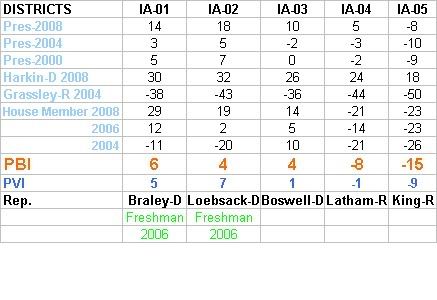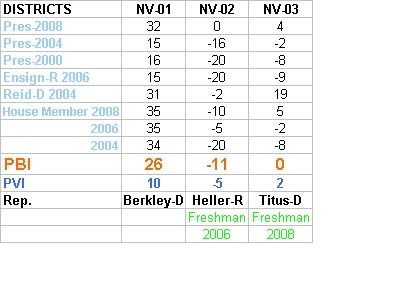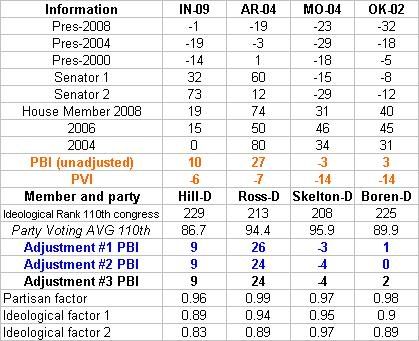It’s been a while since I posted a diary here about the Iowa governor’s race, so I’m catching up today after the jump.
Governor Chet Culver said this summer that he’d be “cranking up” his campaign operations soon, and last week the governor hired Andrew Roos to run his re-election campaign and Jesse Harris as deputy campaign manager. Jason Hancock has background on Roos and Harris at Iowa Independent.
Republican candidate Christian Fong, a Cedar Rapids flood recovery leader, claims Culver hasn’t done enough on flood recovery (more on that here). Illogically, Fong also opposes the I-JOBS state bonding program, which has allocated $45 million to flood recovery projects in Linn County alone. (Click here and here for a more detailed look at the Obama-like campaign narrative Fong is building.)
The Republican front-runner (for now), Bob Vander Plaats, held a few events around Iowa on Labor Day to officially announce his candidacy. In keeping with his tendency to advocate unworkable policies, he pushed another off-beat idea. Instead of just criticizing Culver’s I-JOBS state bonding program, like every other Republican does, Vander Plaats says that if elected, he would try to pay back the bonds during his first term (you can read the Vander Plaats press release here). State Treasurer Michael Fitzgerald, a Democrat, and State Representative Chris Rants, a rival Republican gubernatorial candidate, agree that the Vander Plaats idea is unworkable.
Meanwhile, Vander Plaats is promising not to balance his ticket with a less-conservative running mate:
“I’m not looking to balance the ticket with somebody who’s moderate or liberal or who doesn’t believe in those core values like I do,” he said. The core values, he noted, include believing in a right to life and that marriage should be between one man and one woman.
He didn’t mention former Gov. Terry Branstad, but the inference was clear – the former governor chose pro-choice Republican Joy Corning as his running mate.
Lest anyone get too impressed by Branstad’s ticket-balancing, Rekha Basu reminded me recently that Branstad endorsed the inept Jim Ross Lightfoot over the highly capable Corning in the 1998 GOP gubernatorial primary. Also, when one of Lieutenant Governor Corning’s annual diversity conferences included a workshop on workplace discrimination, Branstad sided with an anti-gay crusader who attacked the workshop.
Establishment Republicans have been trying to recruit Branstad since two Republican-commissioned polls taken in July showed him leading Culver in a hypothetical matchup. The Iowa Republican blog’s poll, in the field the first week of July, had Branstad ahead of Culver 53-37. Hill Research Consultants did a poll for the 527 group Iowa First Foundation later in July and found Branstad ahead of Culver 53-34.
Branstad has said he’ll announce in October whether he plans to run next year, but it looks increasingly likely that he’ll jump in. Since he’s not a candidate yet, he can’t raise or spend money on the race. Enter the “Draft Branstad” political action committee that former State Representative Sandy Greiner launched at the beginning of September. They’re collecting signatures on a petition at draftbranstad.com. They’ve been advertising on The Drudge Report, one of the highest-traffic conservative websites. Draft Branstad flyers were distributed at Saturday’s Iowa/Iowa State football game. They’re running a 60-second radio ad statewide. Among other things, the flyers and radio ad praise Branstad for his “fiscal discipline” and balancing the budget. That’s quite the revisionist history lesson.
I’m enjoying the @draftBranstad Twitter feed, which periodically reprises the great one’s profound words: “My passion for our state has grown with every day I have served it.” Branstad 1/13/98″; “This spirit of neighbor helping neighbor is as Iowan as the tall corn we grow.” -TEB 1/9/96
Des Moines Register Marc Hansen wrote last week that “coming back could be the biggest mistake of [Branstad’s] life.” Highlights:
The best Branstad could do in 1994 against fellow Republican Fred Grandy was talk about how Rep. Gopher wasn’t a real Iowan. […]
The further removed from office he gets, the more popular he becomes. In February 1997, not long before Branstad reaffirmed his decision not to run for a fifth term, the Iowa Poll said 55 percent of Iowa adults believed Branstad should not seek another term in 1998. Thirty-five percent said he should. The other 10 percent were unsure.
The minute he wasn’t running, his numbers started climbing.
I don’t even want to get into Richard Johnson, the state auditor who supported Grandy in ’94 because of the way he said Branstad was keeping the books.
Incidentally, Richard Johnson is co-chairing the Vander Plaats campaign. We’ll probably be hearing more from him if Branstad enters the gubernatorial race, as most political observers now expect. For a preview of other arguments rival Republicans are likely to make against Branstad, see here and here.
Branstad didn’t turn up at the Iowa Family Policy Center Action’s fundraiser on September 12, but four others in the Republican field attended. For some reason, State Senator Jerry Behn wasn’t there, despite recently forming an exploratory committee for a gubernatorial bid. Iowa Senate minority leader Paul McKinley didn’t attend the Iowa Family Policy Center’s event either, but that’s par for the course for him since he claimed to be “aggressively” exploring a campaign for governor.
Vander Plaats was on friendly turf at the Iowa Family Policy Center event, easily winning the straw poll with 63 percent of the votes. (Fong and Rants finished a distant second and third.) The Vander Plaats plan to stop gay marriage on day one as governor is a hit with that crowd. Vander Plaats also also promised not to expand gambling and to put representatives for parochial schools and home-schoolers on the State Board of Education.
Rants usually talks about the budget and taxes in his stump speeches, but he adapted his pitch for the Iowa Family Policy Center event, referring to moments of personal prayer as well as his efforts to bring a constitutional amendment banning same-sex marriage to the Iowa House floor. Rants also
acknowledged that there’s not a lot of space separating Republican candidates on the issues.
But honesty will be important, he said. That might be difficult in the primary, he said, noting that some of the things he’s said in the past few weeks have made some people uncomfortable. He did not give more explanation, but in the past few weeks, he’s called into question Bob Vander Plaats’ portrayal of himself as a CEO who’s been a turnaround artist. Rants released tax returns that appear to show deteriorating finances at a nonprofit organization that Vander Plaats led.
“If we’re going to ask Iowans to trust us,” candidates have to lead by example, he said.
I can’t see any way Rants gets the nomination. I don’t even know of another state legislator who’s endorsing him, which is remarkable given that he used to be Iowa House speaker until the GOP lost the majority in the 2006 elections. That said, Rants is smart enough to know that there probably will be room for only one other candidate if Branstad enters the race. So, he’s been going after Vander Plaats for bad policy ideas as well as his record as CEO and board president of the non-profit Opportunities Unlimited. (I recommend reading the whole comment thread under this story.)
Fong tried to inspire the Iowa Family Policy Center crowd:
Too much debt and too-high taxes are problems; so are abortion and other major issues, he said. But “the critical issue for our cause” is spiritual, he said.
Christ-like leadership is needed, with integrity and compassion, he said. It’s service above self. Voters are hungry for something greater than government and politics, he said.
“A hurting Iowa” needs that leadership, he said.
He called for leadership based on the “political philosophy of Jesus Christ himself.”
State Representative Rod Roberts claimed to have the right leadership qualities for a governor:
He’s been asked, “Rod, Aren’t you too nice to run for governor?” He replies: His two favorite Republican presidents are Abraham Lincoln and Ronald Reagan. They were friendly, civil and respectful, but they also knew what they believed, stood their ground and knew where they were going, he said.
“That’s what leadership is about,” he said.
“A leader is someone who knows the way, goes the way and shows the way,” he said.
Before the gubernatorial candidates spoke, Iowa Family Policy Center head Chuck Hurley previewed his group’s efforts to pass a constitutional amendment banning same-sex marriage.
“If they don’t see the light, maybe they’ll feel the heat,” said Hurley, who urged supporters of a constitutional amendment to define marriage as between one man and one woman to seek more information at luviowa.com on how to get involved. […]
The goal of the group’s effort is to get all 150 state legislators on the record where they stand on the marriage issue and then “to pressure middle-of-the-road legislators who said they believe in one-man, one-woman marriage to vote that way in January and February,” Hurley said.
He also made a special point to let the audience know that three of the seven Iowa Supreme Court justices who overturned the state’s 1998 defense of marriage act will be up for retention votes on the 2010 ballot. Hurley said it was the justices’ “rogue decision” to allow “counterfeit marriage” that now requires a vote of the people to “rein-in” the judicial malpractice and to “rebuild the moral and legal culture that respects and strengthens marriage rather than tears it down.”
It looks like Hurley’s group is not focusing on the quickest way to amend the constitution: urging voters to approve the ballot initiative calling for a Constitutional Convention. That’s going to be on the November 2010 ballot anyway and, if approved, could lead to amendments being drafted in 2011. Social conservatives may be afraid that Democrats would end up controlling a Constitutional Convention, but if stopping same-sex marriage is such an urgent need for them, they should be pursuing all legal avenues to do so.
I didn’t see whether anyone at the Iowa Family Policy Center’s event mentioned the September 1 House district 90 special election. The Republican Party and conservative interest groups went all-in for that race but came up 107 votes short. Craig Robinson thinks the GOP erred in letting staff from Iowans for Tax Relief run the campaign of Republican Stephen Burgmeier. The Iowa Family Policy Center also delegated a staffer to work on Burgmeier’s campaign.
Share any thoughts or predictions about the gubernatorial campaign in this thread. If you follow Delaware or Virginia politics, feel free to share your thoughts about Andrew Roos.
I am looking forward to the next Selzer poll for the Des Moines Register, which will probably come out during the next month.


